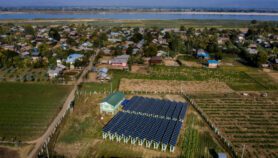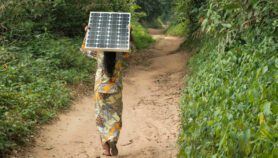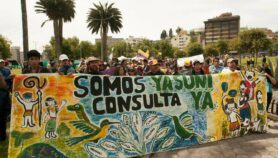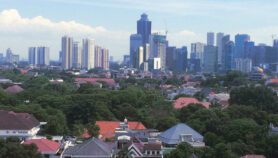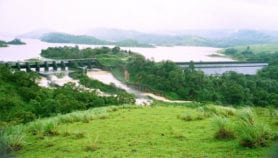By: T.V. Padma
Send to a friend
The details you provide on this page will not be used to send unsolicited email, and will not be sold to a 3rd party. See privacy policy.
[COPENHAGEN] Climate policies will only work if they get energy to the poor through timely technology transfer, senior UN officials told a session at the Copenhagen climate talks yesterday (16 December).
Sha Zukang, under-secretary general for economic and social affairs, told a meeting on international technology transfer that developing countries need climate technologies "that can be mobilised quickly" and are within the reach of poor communities.
He said technologies excluding the majority of people either because of high cost or intellectual property rights barriers will only deepen poverty and distrust. Technology transfer, he argued, is one of the core issues that will determine the success of the climate summit.
Experts at the meeting identified universal energy access — to electricity and heating and cooking fuel — as key to countries’ development.
Around three billion people in developing countries still rely on biomass for heating and cooking and 1.5 billion have no access to electricity, said Helen Clark, administrator of the UN Development Programme (UNDP).
Achieving universal energy access for poor households, using renewable energy, would increase global greenhouse gas emissions by less than one per cent, she said.
But Kandeh K. Yumkella, director-general of UN Industrial Development Organization (UNIDO), cautioned against giving developing countries "the false impression that renewables will solve all energy problems. We need to be realistic about an energy mix".
It is not sufficient for development agencies to install solar panels on a couple of roofs in a community project and claim a successful energy supply, he said.
He added that energy should be looked at in community terms, so that the solar panels can help local communities pump water for irrigation or store vaccines, for example.
Experts also emphasised that technology transfer should be accompanied by appropriate policies to aid wide-scale deployment.
Achim Steiner, executive director of the UN Environment Programme (UNEP), said that regional technology innovation centres were the way forward for wide diffusion, as they could help developing countries use technologies according to needs of the users rather than the terms of sellers (see African climate hubs could drive clean energy research).



